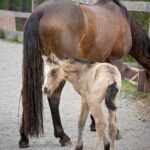Horses are incredibly beautiful and versatile animals. They have an impressive body coat and hair in the form of leg feathers, mane, and tail. But they have mustaches too.
Some horses do have mustaches or horsestaches. Horse mustaches are something that will catch your attention at once. Although they may set us into giggles, they are real and one of the special oddities in horses. Mostly seen among the Gypsey Vanners, among other breeds, the mustaches can be commendable to look at.
Here, we will be looking at some of the interesting mustache facts in horses and why do they grow this oddity in them.
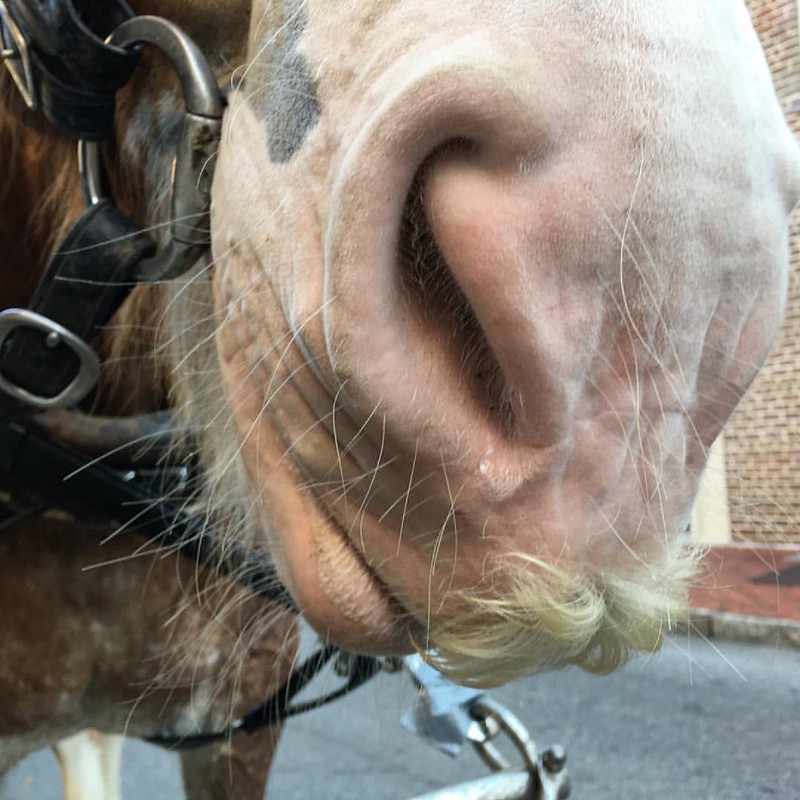
Do all horses have mustaches?
It is a true fact that you will find mustaches in horses. They are one of the most common odd but real traits in them. So, we must not confuse them with whiskers.
Not all horses have mustaches. To possess mustaches horses should have the right genetic factor or makeup. So, we can commonly find whiskers in them but not mustaches if they do not carry the right genes. In most cases, horse breeds known for having luscious hair and locks tend to grow mustaches.
Mustaches are often considered to represent assertive masculinity among the equines that acquire them. Horses that grow mustaches tend to have a genetic makeup different from those that do not possess them.
What type of horse can grow a mustache?
A mustache may be a thing to giggle at for humans. But it is not every day that we come across horses with mustaches of different shapes and sizes. Also, we cannot deny they look absolutely commendable.
Horse breeds like Gypsy Vanner, Clydesdales and Shires (mostly as they age) tend to grow mustaches. These breeds are also likely to grow long manes, flowy legs feathers, and thick tails. The gene that is responsible for this heavy hair growth is said to cause these breeds to acquire mustaches as well. However, among all these breeds, we can find mustaches most common among the Gypsy Vanners. They grow luxurious mustaches that are worth looking at. With all their flowing mane and glorious mustaches, horses of this breed look no less enigmatic and alluring.
Why do Gypsy Vanners have mustaches?
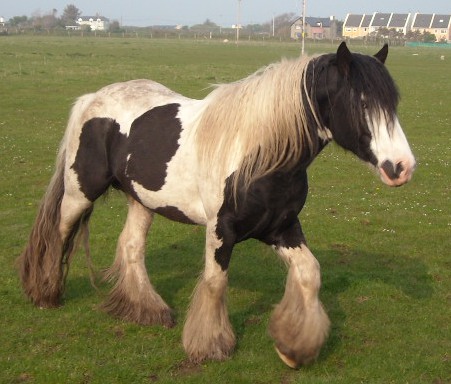
From curly mustaches to long hair reaching and even passing beyond their snouts, Gypsy Vanners can grow mustaches in different sizes and shapes. Also, if their hair is not clipped, they can grow beards as well.
Gypsy Vanners grow mustaches because of their genetic makeup. They have their genetic origin in the Clydesdale, the Shire, and the native British ponies. These breeds, especially the Clydesdale and the Shire, are known to have extensive body hair. So, when they are bred the resulting Gypsy foal gets extra copies of hair genes causing them to grow luxurious body hair and mustache.
That being said, extra hair genes can be found in both male and female Gypsy Vanners, causing both male and female to grow mustaches. So, it is not surprising if we find mustache in Gypsy mares as well.
Why do some horses have mustaches?
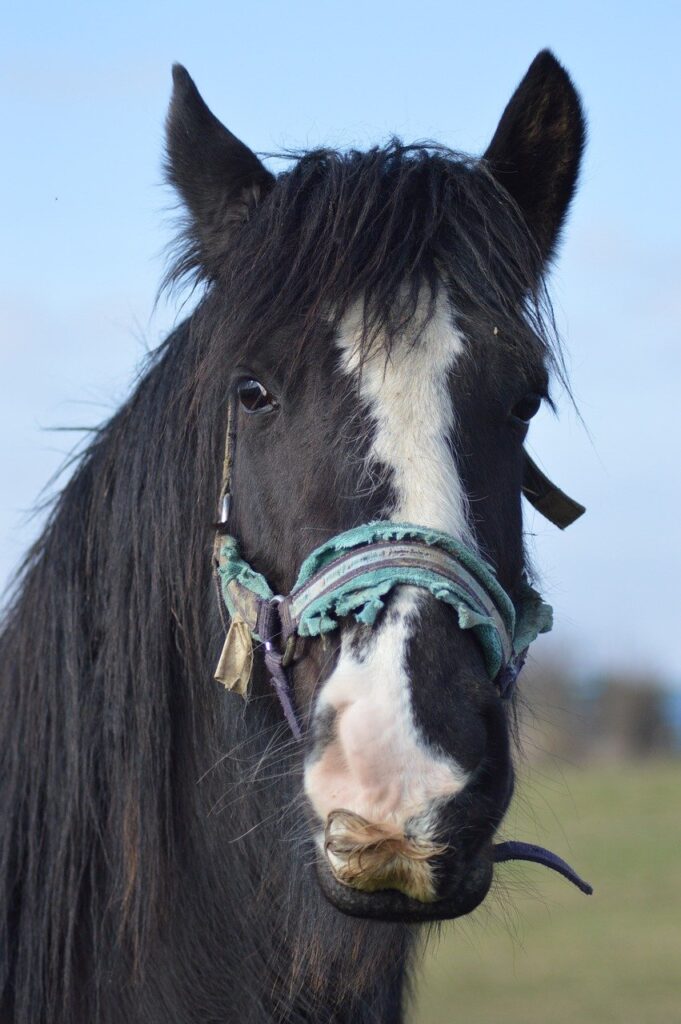
Some horses acquire mustaches and some do not. Although mustaches in horses are not a common thing to see, it does not depend on their breeds. But why do some of them have that thing?
Some horses have or grow mustaches because of their different genetic makeup, especially their hair gene. The hair gene, in horses, is cumulative or additive. So, horses with more of this hair gene tend to grow more body hair, which can take the shape of mustaches as well.
That being said, the genes causing hair growth in horses are recessive, which makes their proper breeding very essential. It is through breeding hair to hair can maintain or give a boost to hair and mustache growth in horses.
Do female horses grow mustaches?
The growth of mustache does not depend on breed or gender but the genetic type and combination. So, do we get to see female horses with mustaches as well?
In the animal kingdom, female horses or mares can grow mustaches. The hair gene, causing mustache growth, does not discriminate between males and females. If the genetic makeup is in the favor, even mares can acquire long body hair, mustaches, and even beards.
Why do cobs have Moustaches?
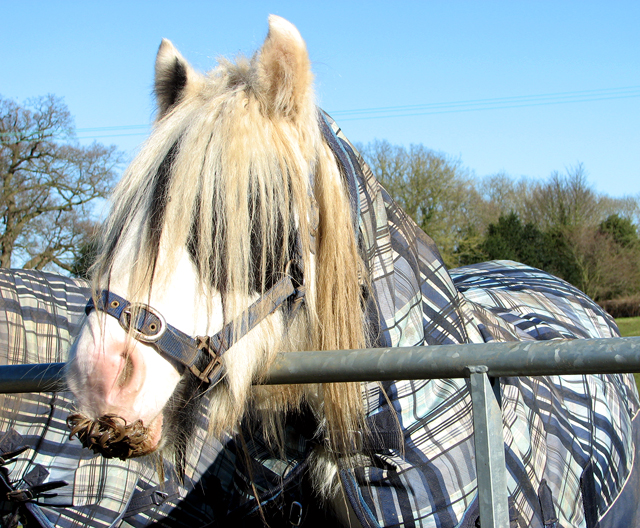
Much like Gypsy Vanners, cob horses are also known to have strong bones, larger joints, and hairy coats. Apart from these, they also grow long and thick manes, feathers, and tails, along with mustaches.
Cobs have the right genetic makeup, like Gypsy Vanners, which causes them to grow thick hair and mustaches. Mustaches are the adaptations that help them to feel and differentiate types of grasses. Cobs can scratch the ground with their mustaches and search for grasses even in low-light conditions.
Also, mustaches in cobs help them to search for food during the winter season better. That being said, if their mustaches are not clipped, they may grow them curling around their lips. Also, cobs, if not clipped, can grow an abundance of jaw hair.
What is the point of growing mustaches in horses?
Mustaches are indeed a unique feature among horses, although not in all of them. Their genetic makeup helps them acquire them but what are their uses or purposes?
A horse’s mustache is a natural thing and helps them to feel and differentiate between grasses while they graze in low or poor light conditions. Mostly, native horse breeds tend to have mustaches who need to scratch about to get the best grass.
Mustaches in horses are like human beards and they can be shaved off. Also, mustaches are like winter attire from the horses, they grow them in this season and shed them in summer.
That being said, excessive mustache or hair growth, in horses, can be abnormals sometimes. They may be the result of hormonal imbalance or neglected health status.

